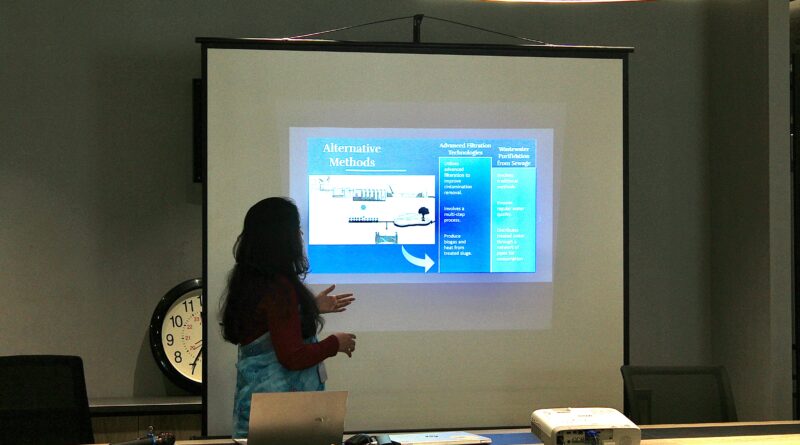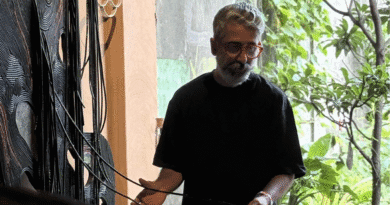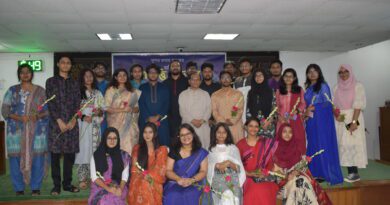Closing Ceremony of the Extensive Cause-driven Research Training Program of SIL
The Closing Ceremony of Brac University’s Social Impact Lab (SIL) reached a pinnacle on February 4th, celebrating the culmination of an intensive Cause-driven Research Training Program. This initiative aimed to inspire and encourage youth enthusiasts to delve into multidisciplinary research addressing social concerns. The event has been showcased at the School of General Education of BracU, with the dedication and achievements of participants in advancing knowledge and action in water conservation and sanitation management areas of marginalized communities.
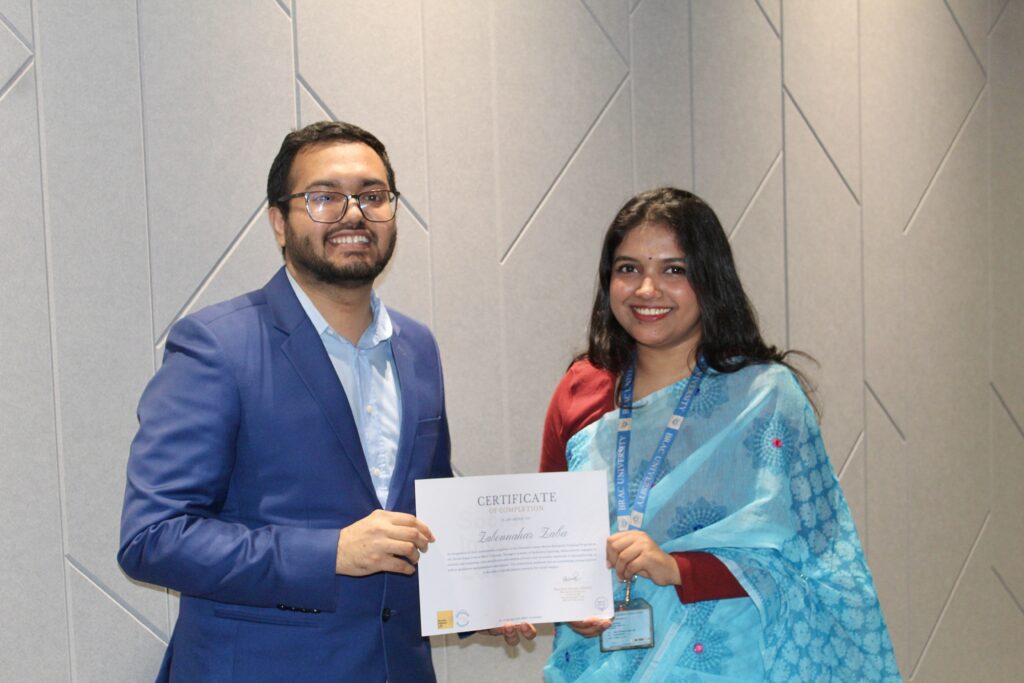
A cohort of ten exceptionally motivated students emerged from a pool of 34, selected to explore water conservation and community engagement under the mentorship of Hasibul Hasan Ahmed (Senior, CSE), co-founder of Social Impact Lab. The program’s focal points included pioneering approaches to sustainable water management and sanitation systems in the Korail slum, exemplified by research projects titled “An Edge-Cutting Approach to Sustainable Water Conservation and Sanitation System in Korail Slum through DEWATS,” and “An Alternative Approach to Fresh Water Conservation and Supply System for Korail through Industrial and Solar Disinfection Methods.”
SIL also initiated a community-driven initiative to clean Banani Lake through student participation, encompassing both awareness-raising and water purification, as an expanded component of this research. Incorporating the technological advancement of a water purification method to increase the project’s sustainability was acknowledged, even though it was a social development initiative. The conference appeared to be delving into the development of a comprehensive drinkable water source for the slums of Korail, which was the second topic under consideration.
The founder of Social Impact Lab, Srijan Banik, added the importance of constructive criticism in steering the progress of the research in an interview. Also, he brought a high value to the practicality of training sessions in assisting students in preparing for the completion of their upcoming theses and in developing project-driven research. Furthermore, considering the public health ramifications associated with the current research, Banik noted the vitality of relying on a rigorous scientific methodology.
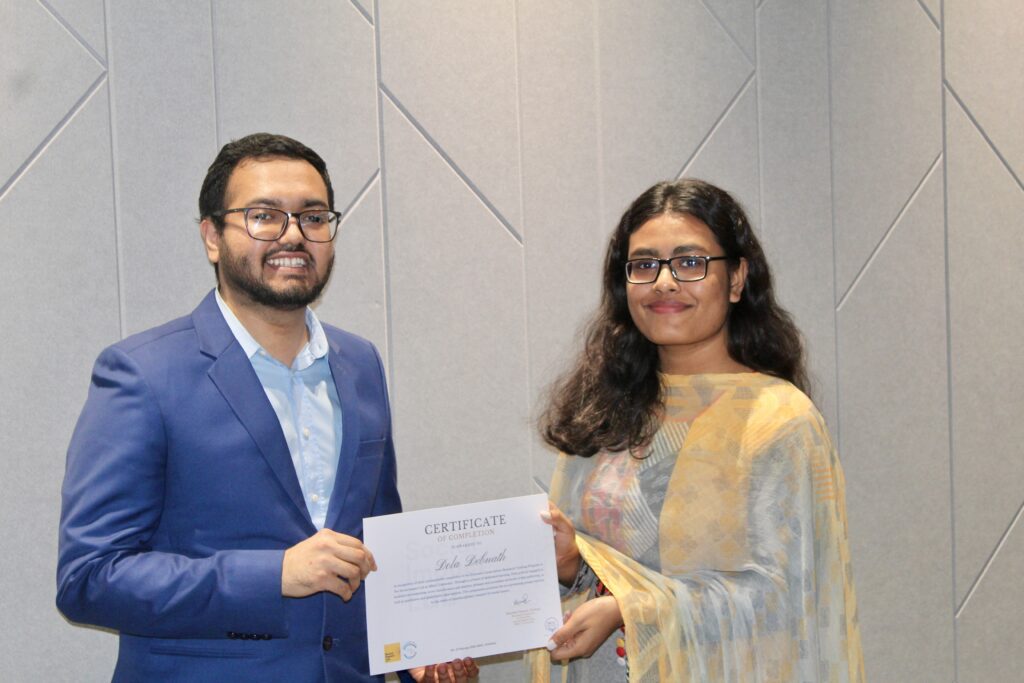
The co-founder Hasibul Ahmed addressed this concern and said “I started a philanthropic cause-driven research training program for inspiring water conservationist efforts among students with my sheer knowledge of primary research conduct and academic writing, and I conducted a 25-hour effort-driven research training in the domain of the Korail community focusing on Banani Lake conservation. Later came unbelievable success. Students of the program together designed EcoFlow Revive, a community-driven project to preserve Banani Lake under the supervision of the Social Impact Lab Bracu. They earned a few international accolades, are going to represent civic action projects in Germany, and won the competition on an international scale for climate sustainability. Finally, they are looking forward to preparing conference journals with their prepared research. This stepping stone affirmed not only the meaning of the progress of participatory students but also shed light on interdisciplinary research aspirations and gave hope for reviving Banani Lake.”
The event welcomed esteemed guests, the chief guests being Dr. Dave Dowland, Registrar of BRAC University, Dr. Samia Huq, Dean of the School of General Education, Dr. Mahboob Hossain, Professor in the Microbiology Program, Fahmida Rahman, Program Coordinator at the School of General Education, and Deptee Sharkar, Senior Manager at the Registrar’s Office of BRAC University.
Throughout the program, expert insights and recommendations were shared to enhance the impact and efficacy of research endeavors. In this regard, Dr. Mahboob Hossain, Professor of Biotechnology mentioned the importance of utilizing the Bengal language for effective communication with community members during surveys and advocating for multimedia documentation to spread quality education in remote areas. The Dean of the School of General Education, Dr. Samia Huq, appreciated the SIL’s contribution to meaningful national initiatives through the implementation of scientific methodologies for water purification and conservation in marginalized communities, utilizing BracU’s resources in the process.
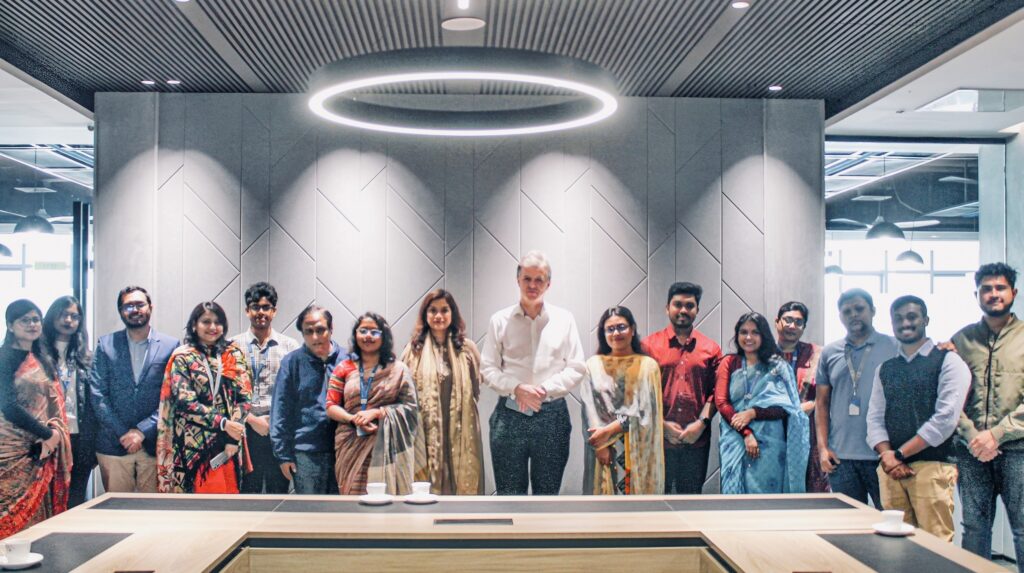
Finally, in the closing segment, Dr. David Dowland expressed his admiration for the significant expansion of SIL at BracU and its capacity to influence the development of society and future students. He congratulated the students’ remarkable research pursuits and underscored the significance of utilizing contextual language when gathering data in further procedures. This recalled the notion of applying knowledge to effect concrete transformations.

